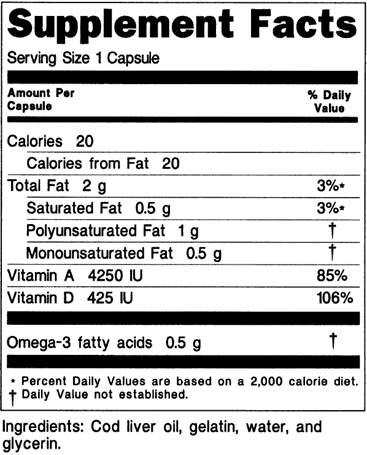Do I Need a Nutrition Label or a Supplement Label for My Product?
If you are new to manufacturing and you have a great product you’re trying to bring to retail that’s nutrition or food-related, you’re gonna need a label to educate the consumer about the contents in your product. But how do you know which one? With the rise in functional foods — food/supplement combinations — it’s no wonder that there’s a bit of confusion around what label you might need. For this reason, we’re going to cover some of the basics so that you can understand whether you need a supplement label or a nutrition label so you can get to retail that much quicker.
Food Product vs. Nutritional Supplement
When you’re trying to determine which label is most appropriate for your product, the first thing you must ask yourself is: is this a food-based product or is it more of a nutritional supplement? For those of you reading who aren’t sure of the difference between the two, here’s a quick breakdown.
A nutritional supplement is something that is primarily in a “dose” form over a “serving size”. If your product comes in a capsule, viscous syrup-like liquid, and contains more of a list of vitamins and minerals than macronutrients like carbohydrates, proteins and fat. It will also likely contain little to no caloric value.

A supplement facts panel is not required to have all of the nutrients that a nutrition panel requires.
A food product will be the exact opposite. Food products will be 75-99% food-based with a supplement of some kind added to them. These products will more focused on feeding a consumer and will offer a serving size to be consumed within one sitting. For example, a protein bar can supplement one’s need for additional protein as well as contain vitamins & minerals, however, it’s purpose is to serve as a meal. It’s primarily food-based, and therefore is more of a food product than a nutritional supplement.
When to Use a Supplement Panel
Since nutritional supplements are purposed to “supplement” the nutrient intake of it’s purchaser, a supplement panel is the most appropriate type of panel to use. A supplement label gives an extensive list of nutritional information that is not focused on larger nutrients like you’d see on a food panel (carbs, fat, protein, etc) but is more focused on the granular vitamin and mineral information contained within the product. A great example of a product in need of a supplement label would be a product called “Joint Juice”. Although it meets the criteria of being “food-based”, it contains nutrients that aren’t normally listed on a nutrition facts panel and also isn’t purposed to serve as a meal of any sort. These nutrients are placed within this “juice” supplement to supply support to the joints, not quench thirst or satisfy hunger.
When to Use a Nutrition Panel
When a product is primarily food-based and it’s purpose is to satisfy hunger or quench one’s thirst while offering some health perks, it’s highly likely that you’ll need a nutrition facts panel. Nutrition panels are great for functional food products that contain a supplement additive. Some time ago, a major soda brand came out with a soda product that had additional antioxidants. But the product’s primary purpose wasn’t to provide antioxidants, it was still to quench thirst and accompany a meal. Therefore, a nutrition panel was sufficient and used in this particular instance.
Ultimately, to determine if you need a nutrition label or a supplement label, you must know the product’s purpose. If you’re selling a food-based product that has the additional advantage of providing some sort of health function (like increased immunity, energy, etc.) A nutritional panel is perfect! And those we have in plenty supply.
